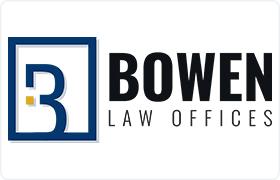Caliente Divorce & Family Law Lawyer, Nevada
Sponsored Law Firm
-
 x
x

Click For More Info:
-
Bowen Law Offices
9960 W. Cheyenne Ave. Suite 250 Las Vegas, NV 89129» view mapDivorce & Family Law Proudly Serving Clark County
Bowen Law Offices brings a wealth of litigation and courtroom trial experience to clients with various family law needs
800-357-1401
Not enough matches for Caliente Divorce & Family Law lawyer.
Below are all Caliente lawyers.
Nick A. Moschetti
Employee Rights, Family Law, Elder Law, Corporate
Status: In Good Standing Licensed: 50 Years
Clifford D. Gravett
Lawsuit & Dispute, Divorce & Family Law, Civil & Human Rights
Status: In Good Standing Licensed: 13 Years
Jedediah P. Bingham
Military, Real Estate, Lawsuit & Dispute, Estate
Status: In Good Standing Licensed: 20 Years
 Jerome Bowen Las Vegas, NV
Jerome Bowen Las Vegas, NV AboutBowen Law Offices
AboutBowen Law Offices Practice AreasExpertise
Practice AreasExpertise
